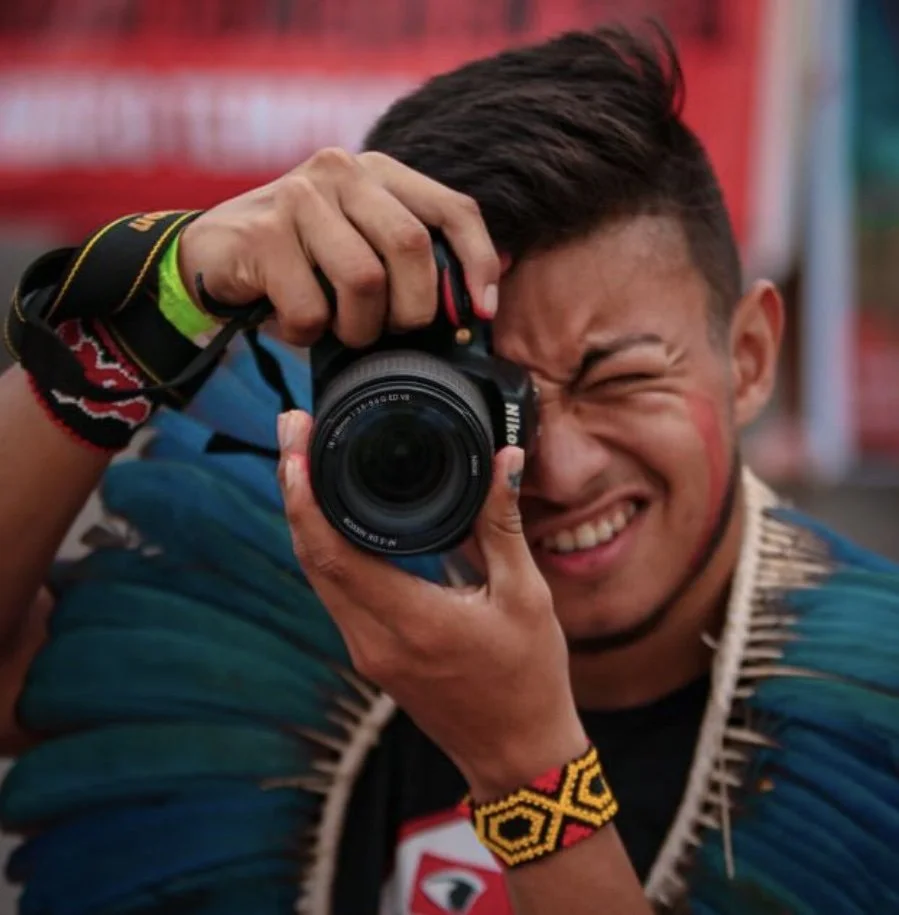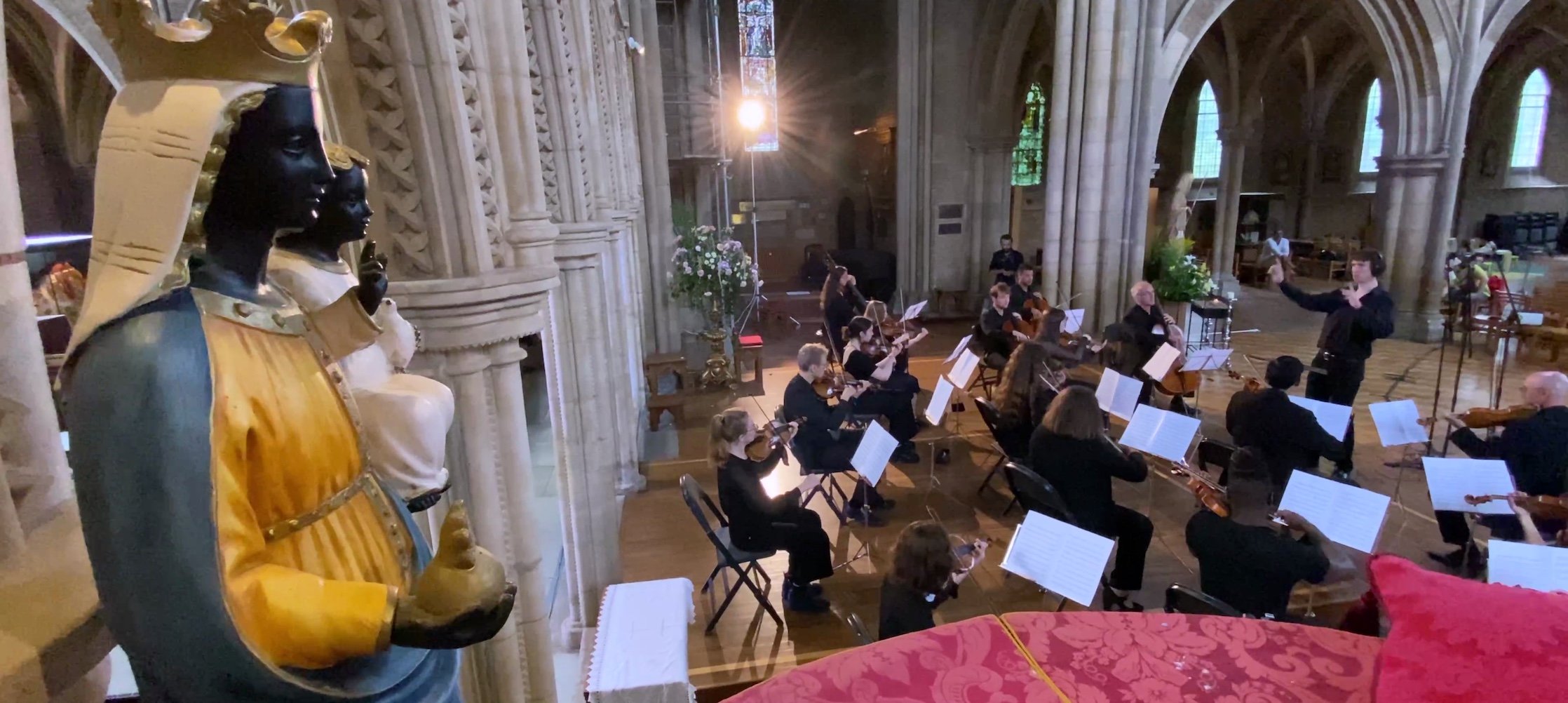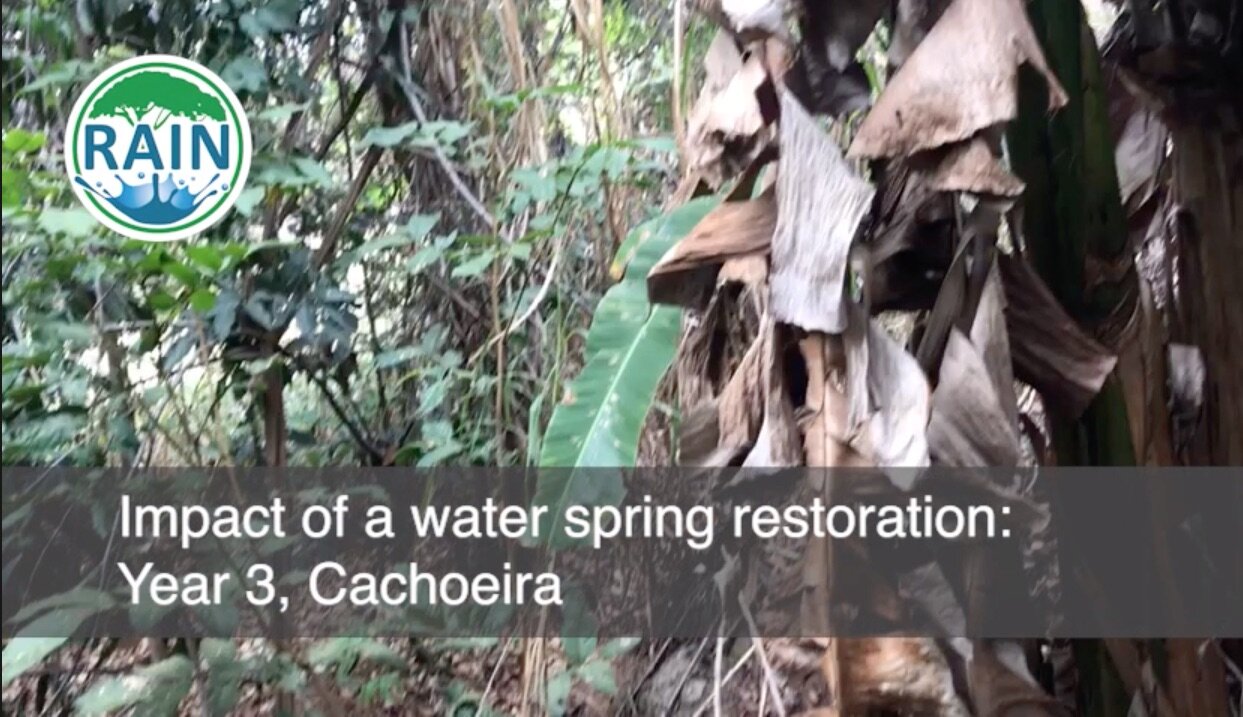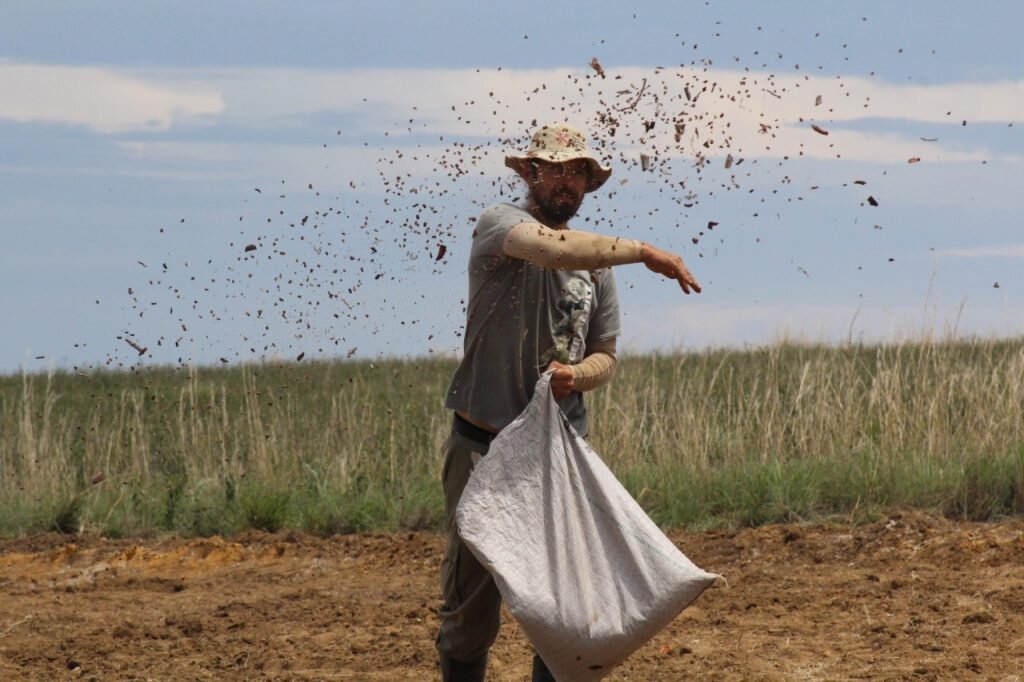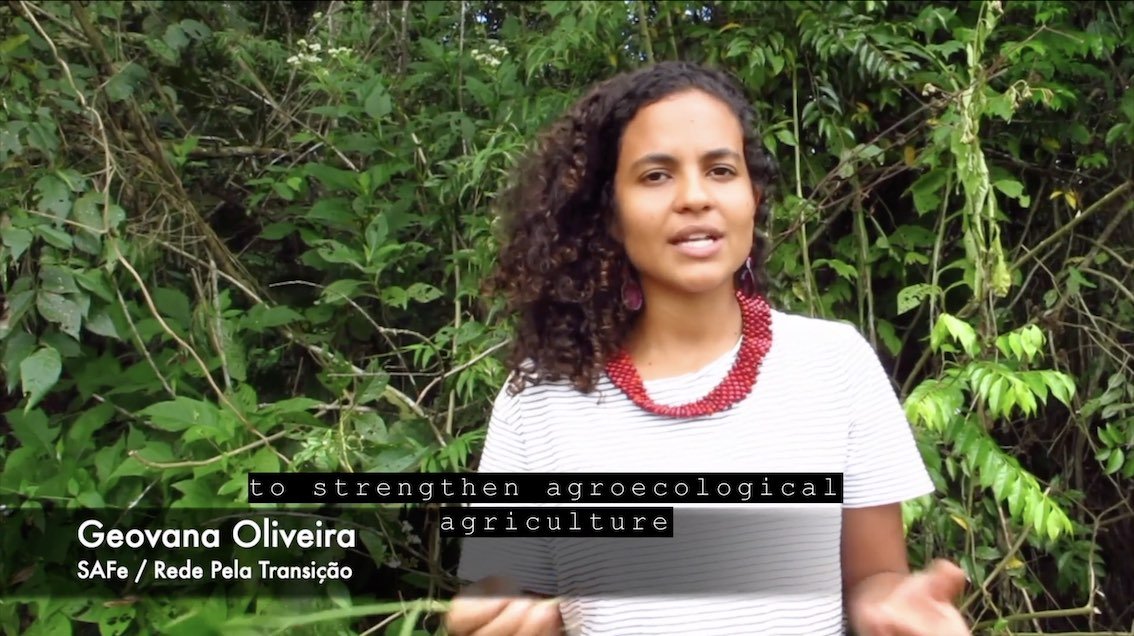
STORIES
News from RAIN.
Video equipment for Indigenous media collective arrives in Brazil!
This equipment will serve as tools of the Indigenous struggle, with members of the Terena media collective sending out their voices and images as a form of Indigenous resistance.
Photos of Indigenous resistance
As the Brazilian government was voting on a new law to open up Indigenous territories to mining and other extractive industries, thousands of people representing nearly all of the contacted tribes made camp in Brasília.
Reforesting with Indigenous nations
The most successful regeneration projects are led by Indigenous people, and many groups have special, even spiritual relationships with certain tree species that can rapidly regenerate their ancestral lands. Learn more about RAIN partnerships with Indigenous nations for reforestation.
Mutual aid from a Brazilian slum to a refugee camp
Agroecology in urban slums and refugee camps is a viable way to help displaced people help themselves to survive, and even to start creating a future for themselves and their families. Our partners in the Brazilian favela have passed on what they have learned to a Kenyan refugee camp.
Audio-visual equipment for our Indigenous Terena partners
Equipment for the Indigenous Terena to tell their stories
Biomimicry in the spirit of Buckminster Fuller
The Buckminster Fuller Institute features Trees of Music in their newsletter.
Indigenous and classical Music together - with Miriam Margolyes
British actor Miriam Margolyes has joined an Indigenous leader and two London orchestras to bring out a stirring new video of a traditional Indigenous song.
Indigenous youth making media!
Our friends from the Terena nation have stories to tell - watch the video of them introducing their collective!
Celebrating victory on Indigenous Peoples’ Day
After three generations of struggle, a patch of Kaingang Indigenous territory is returned to the tribe
Impacts of spring restoration
After three years, our partner Wender revisits the springs he restored to see the impacts of our collaboration.
Urban agroecology video - making natural fertilizer
Women from the favela food security project in a favela of Recife learn how to use food waste and some old buckets to make fertiliser.
What is direct seeding? (video)
Toninho is coordinating our four hectare direct seeding pilot project. Next year we plan to replicate it in four other states.
In these videos he describes the biome, the technique and the community where the project is being undertaken.
Direct seeding pilot launched!
RAIN has been working with Brazilian ecologists to develop and implement a revolutionary method of recovering the Cerrado. It is called direct seeding, and is a way of ‘fast forwarding’ the natural regeneration process.
Indigenous music for World Rainforest Day
Metsre Poa, leader of the Indigenous Noke Koi nation, presents a song of the history of his tribe.
Celebrating a broad umbrella for #Earthday21
Classic FM features Trees of Music
The UK’s most popular classical music station shared the Chiquinha Gonzaga arrangement for strings in support of the pernambuco tree and its ecosystem.
Urban agroecology into nine communities
Our partners in northeast Brazil ran a fundraising campaign to expand their work from one favela into nine. Not only did they meet their target - they smashed it!
Network for Agroecological Transition
RAIN began as a thought on the banks of a dried-up stream in Minas Gerais, and took form over lunch with our bold and bearded friend Márcio.
Márcio phoned Mariana in Recife, Mariana talked to Ravi, and together with a team of students they built a geodesic agroforestry nursery at Professor Cândido Duarte Middle School. Amrou in London loved the idea, and he put up the funds.
The Power of a Network
Mariana set up a centre demonstrating the techniques with a black women’s group from the community of Passarinho. It works. People who were hungry have grown their own food, and medicine as well.
A Decade of Ecosystem Restoration
The United Nations decade of ecological restoration has just begun! This is timely, given the publication of the IPBES report in 2019 which found that ecological degradation and rates of species extinctions are accelerating all over the world.
One of the most powerful means of reversing the trend is ecosystem restoration
TEACH THE FUTURE- Climate Crisis Education
How do educators and young people respond to the storm of changes brought about by climate change and the pandemic? How do we connect, as individuals and citizens, with a future that seems terribly uncertain?
One exceptional organisation has been asking these questions and taking action.

